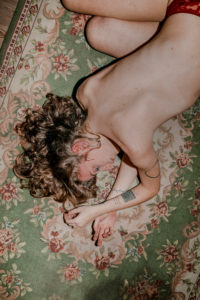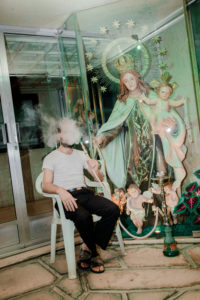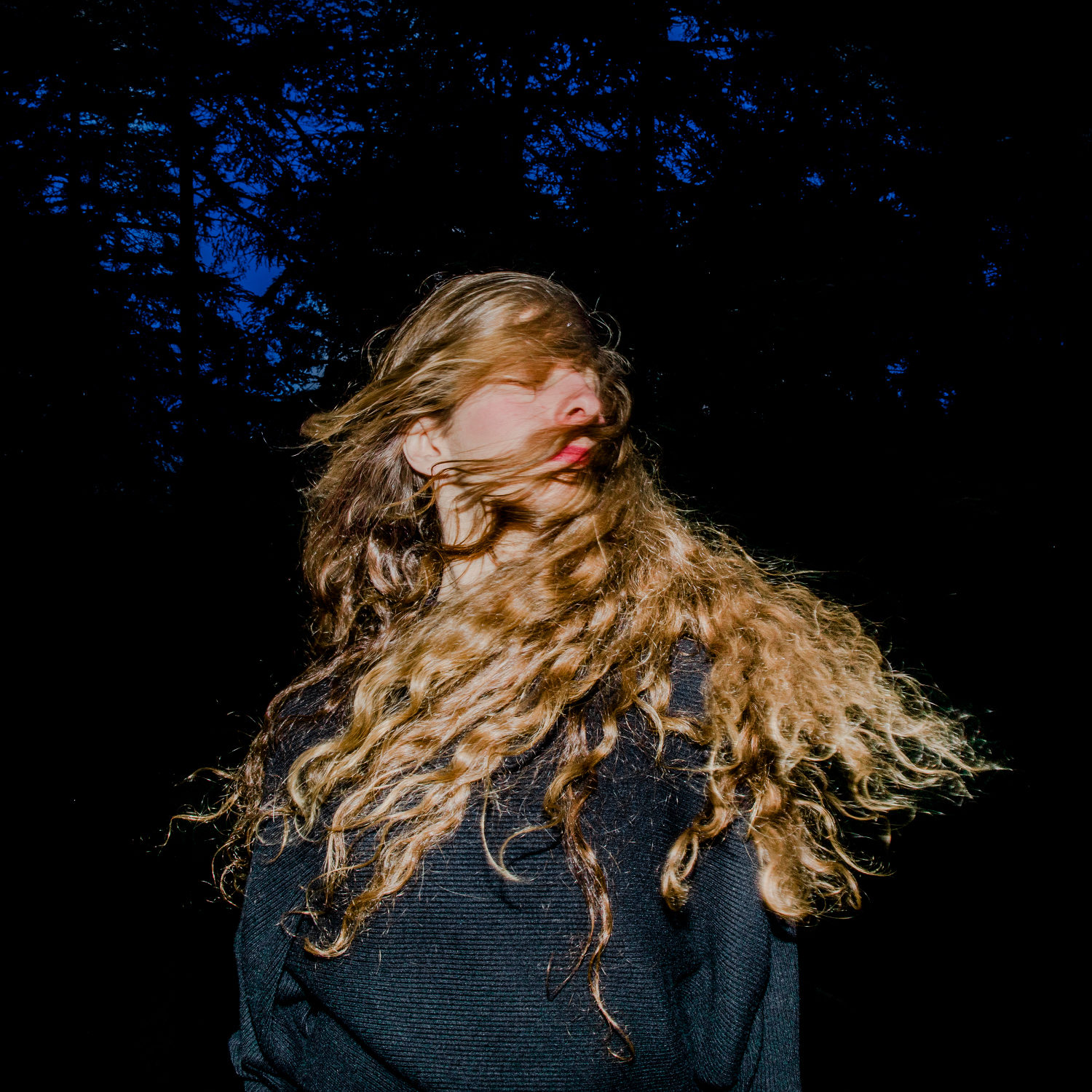Prix AWARE
Myriam Boulos, who grew up speaking French, was born in Beirut in 1992, with the collective dreams of post-war Lebanon. Dreams of a torn society aspiring to reinvent itself. It was also the year that American singer Madonna used excerpts from the music of Arab singer Fairuz without authorisation – a sign of the times for the generation of globalisation quickly curbed by the entrenchment of conflict. This cross-border generation was (re)immersed in the icy reality of war in the mid-2000s. It was then that M. Boulos, at the age of sixteen, took hold of the camera.

Myriam Boulos, Beyrouth, Liban, le 1er juin 2013. Vertiges du matin, © Myriam Boulos

Myriam Boulos, Beyrouth, Liban, le 4 décembre 2018. Still looking for tenderness, © Myriam Boulos
With a diploma from the Lebanese Academy of Fine Arts in hand, M. Boulos made her debut in a schizophrenic Beirut – a city of ashes and glitter. The recipient of a major prize,1 she exhibited her series Nightshift at the Byblos Bank. This series was conceived as a revelation of impulses and identities repressed during daytime life that only the realm of night knows how to shift. Through the narcissistic bodies of the drunken Lebanese youth, the insolence, the shamelessness, the grace, but also the moment of the shift to the other side of the mirror: instead of letting oneself be looked at like a forbidden or staged object, the fetishised and sexualised body of the patriarchal capitalist society steals the show. The young women of Nightshift claim their full place in society in an instinct for nightlife.
Far from the Neo-Orientalist clichés of “contemporary Arab art” prized by the art market such as sociological stereotypes driven by Western media on the “golden youth of the Middle East”, M. Boulos achieves to create an empathetic resistance in a subtle game between stolen and collaborative images: she accompanies the bodies – in their narcissism and their drift – more than she values them; she embraces them more than she reveals them. An attitude historically rooted in the history of documentary photography – from Letizia Battaglia to Nan Goldin – and in contact with not only subcultures but also the defeated and voiceless, is clear in the recent series C’est Dimanche, which invites the viewer into the life of domestic workers on their days off from work.

Myriam Boulos, Beyrouth, Liban, le 6 septembre 2018. Tenderness, © Myriam Boulos

Myriam Boulos, Beyrouth, Liban, le 6 juillet 2018. Dead end, © Myriam Boulos
In a climax of errancy, the Tenderness series (since 2018) gives existentialist overtones to intercourse. Eroticism moves into self-protective postures: bodies curled up inside each other seem to escape our gaze, displaying the stigmata of a resistance to social and economic exclusion. In the series Dead End (2019), the pleasure of transgression and violence of marginal living are intertwined: the nocturnal nude in the street like a fleeting happening to reconnect with the cosmos and the stellar landscape through the complicit eye of M. Boulos. To better underline these non-productive or non-conforming lives that she has approached over a long period of time – speaking even of a slow documentary approach – she embraces them.
Indeed her long-term approach is exhibited in international institutions, particularly in France: in 2019 and 2020, she exhibited at the Institute of Islamic Cultures and the Arab World Institute, as well as Aperture Gallery in New York and at the Beirut Art Center. But it is in the French press (including Les Inrocks, Libération, Polka, Vogue) that her photos circulate the most, especially the striking series made in the heat of the moment during the recent Lebanese revolution2. Currently in the midst of the post-apocalyptic documentation of the aftermath of the explosion of August 4, 2020, M. Boulos is nonetheless a dazzling and committed incarnation of the future of photography taking shape, like a hyphen between Paris and Beirut.
Morad Montazami
Myriam Boulos (born in 1992 in Beirut, Lebanon) emerged from a country fragmented by war that had to reinvent itself. At the age of sixteen, she started to use her camera to question Beirut, its people, and her own position in Lebanese society. She graduated with a master’s degree in photography from Lebanese Academy of Fine Arts in 2015. She has taken part in both national and international collective exhibitions, including Infinite identities (Amsterdam, The Netherlands), Troisième biennale des photographes du monde arabe (Paris), C’est Beyrouth (Paris), Berlin PhotoWeek, and Photomed (Beirut). She received the Purple Lens Award in 2014, which resulted in her first solo exhibition in 2015. Her second solo exhibition took place at the French institute of Lebanon in 2019. Today she uses photography to explore, defy and resist all forms of social and political domination.
The Purple Lens by Byblos Bank, 2014.
2
Popular uprising started on October 17, 2019.
Translated from French by Katia Porro.
Tous droits réservés dans tous pays/All rights reserved for all countries.





